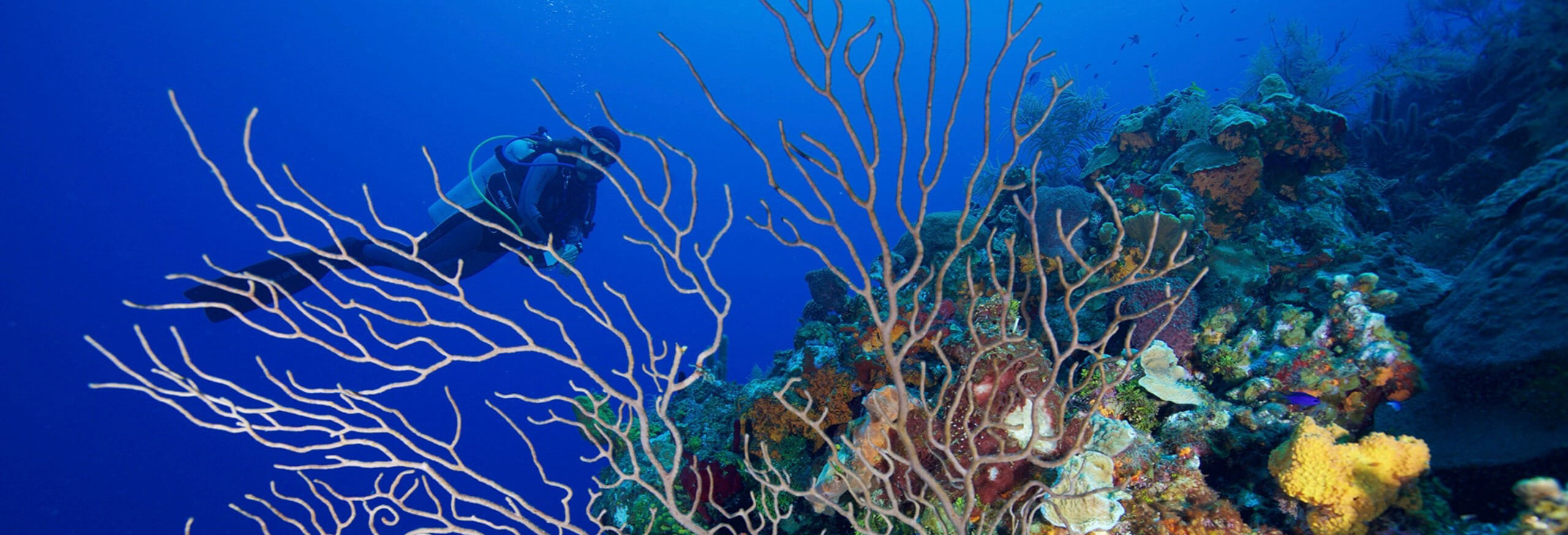We believe science is redefining what’s possible.
It’s our mission to save all corals. Some experts suggest this is impossible. But it is precisely the role of science to redefine the boundaries of the possible.
Corals and reefs are among the most vulnerable ecosystems on the planet to human-caused pressures. Already, between one third and one half of the world’s tropical coral reefs have been lost.
So, faced with these odds, and if the scale of our ambition seems unachievable to some, is it time to redefine our mission?
Our short answer is NO. It is time to make the impossible possible.
We know time to act is limited.
The coming 5-10 years may offer the last chance to change the trajectory of corals from a descent toward worldwide collapse to a slow but steady recovery. But critically, that chance still exists, provided we act now.
We know funding isn’t bottomless.
There is a clear need to ensure the allocation of our conservation resources is done based on scientific reasoning. That’s why we are guided in all our decision making by our international Scientific Advisory Committee.
We know no single nation can tackle the problem alone.
Which is why CORDAP was launched at the G20, by a coalition of nations who are determined to work together, to create a future where corals don’t just survive, they thrive.
And we believe, despite these obstacles, that a future is possible for all coral ecosystems.
By bringing together the best minds worldwide, CORDAP wants to accelerate international R&D to help supply the technologies and innovations that we believe will redefine the boundaries of what’s possible and build a secure future for all our corals and reefs.
And there are glimmers of hope already.
Red Sea corals are showing climate resilience and if we can understand the science of those reefs, we can begin to build a network of climate resilient reefs around the world. At COP27, Egypt designated 2,000 km of these reefs as part of a new Marine Protected Area. Meanwhile, in Indonesia, there are more than 500 individual coral reef restoration projects underway, alongside the largest coral restoration project in the world, the Indonesian Coral Reef Garden Initiative, which is made up of almost one million structural units sunk in five areas around Bali.
Some may believe we’re setting out to achieve the impossible. But we would ask – what are the consequences if we don’t even try?
A recent poll of our followers suggests we’re not alone in thinking that all corals are worth saving. 96% of respondents agreed with us that no coral should be outside our conservation efforts.
So, while it’s possible that we won’t meet our goal to conserve all corals, we believe that it’s our moral obligation to at least try. And we cannot do it alone.
That’s why we need this kind of challenging conversation. We welcome it. We need to hear the thoughts and opinions of experts and scientists, even if they differ from our own.
We want to be challenged, so we can make sure that every decision we make is robust, that every project we fund adds value, and that we are creating a future where every effort is being made to restore and protect the world’s corals and reefs.
Because we believe ALL corals deserve a chance to be saved.
Do you? #NoCoralLeftBehind
Photo: Gregory Piper

